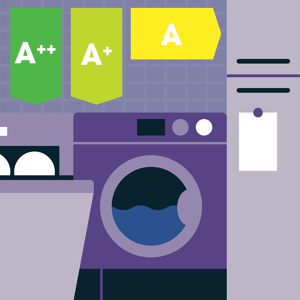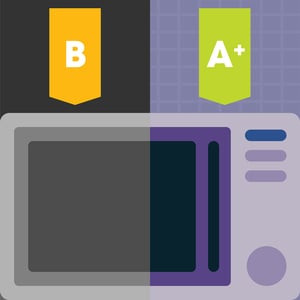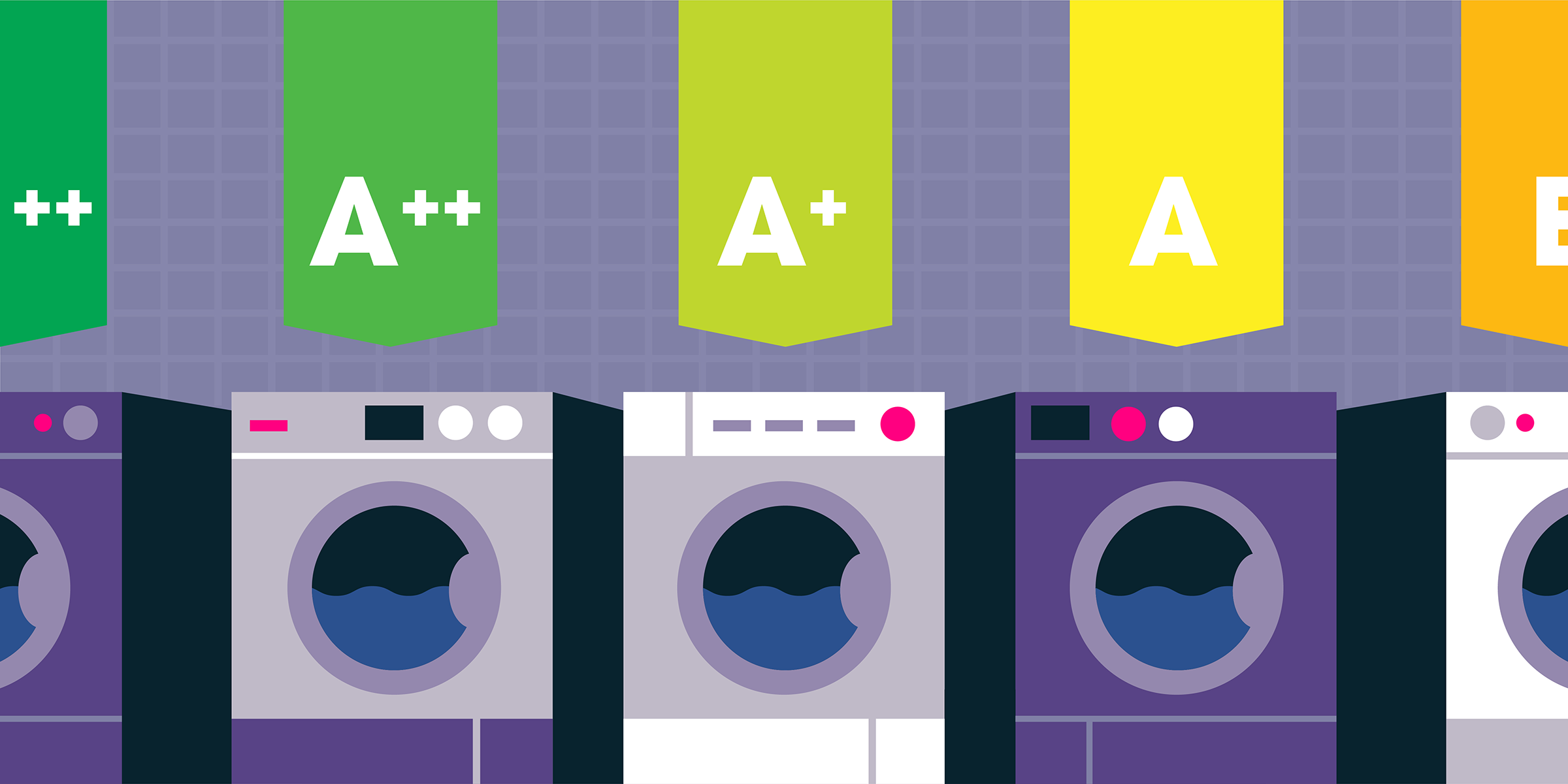How Green Is My Washing Machine? Using Energy Efficiency Ratings
If you buy a new fridge, washing machine or other home appliance, you’ll see they have nice, clear labels showing how efficient they are compared to other products.
The labels provide a simple colour-coded rating from G, for the least energy-efficient products, up to A+++, indicating the most energy-efficient on the market.
Wasted energy makes up 30% of the average energy bill - do something about it! Get more from your smart meter with Loop.
The result is that it’s easier for you to choose a machine that will save you money on your household energy bills and reduce your greenhouse gas emissions. The Europe-wide ratings also encourage manufacturers to innovate by using more energy-efficient technologies.
The UK government gives the following examples of savings by choosing the top-rated A+++ rated machines:
- Washing machine: save around £5 each year compared with an A+ rated one
- Tumble dryer: save around £46 each year compared with a C-rated one
- Fridge: save about £190 over the lifetime of the product compared with an A+ ones
- Electric oven: use 60% less energy than a B rated one

However, while the labels help you to quickly get an idea of a machine’s efficiency, you do need to consider size: choosing the wrong-sized machine could cancel out any savings. So this means, for example, that a smaller A rated fridge could use less energy than a large A+ rated fridge. Similarly, be practical: if you buy a large A+++ rated dishwasher, but don’t fill it up properly, you’ll waste electricity.
Change Is Coming
All of those plus signs can get a bit hard to read and navigate. So, changes are coming in 2021, to reintroduce the simpler A to G scale.
The change is also intended to reflect increased innovation in energy efficiency. Existing products will be shifted down the rankings to make space at the top. So, an A+++ energy efficiency product could for example become a class B, without any change in its energy consumption.

Appliance Repairs
Along with the changes to the energy efficiency rankings in 2021, separate rules are to come into force to ensure that new appliances are easier to repair and longer-lasting.
The European rules - which British firms will have to follow if they want to sell into Europe after Brexit - will apply to lighting, displays, washing machines, dishwashers and fridges.
They’ll have to meet minimum repairability requirements aimed at extending their lifetime.
It’s hoped the legislation will mean appliances are changed less frequently, meaning fewer need be manufactured, reducing waste, while consumers save money.
• • •
Cut Your Energy Bill With Loop
Loop is a FREE energy-saving app that links to your smart meter, analyses your energy use and shows you easy ways to save. On average, Loop users cut their energy use by 15%! How much could you save?








